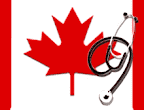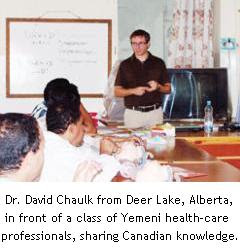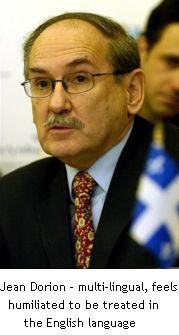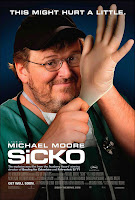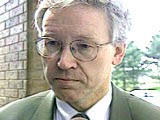Liberal Leader Stephen McNeil's remonstrations in the legislature this month condemning a year-old memo from some Capital District Health Authority physicians proposing a new, doctor-driven, private-public, "Mayo Clinic-like" hospital facility in metro were an emblematic example of the sort of backward, stick-in-the-mud attitudes and reactionary, tunnel-vision thinking that keep Nova Scotia an underachieving backwater.
McNeil trotted out the customary boilerplate about defending the sacrosanct public health care system from the evils of profit motive or market accountability, trotting out the old FUD (Fear, Uncertainty and Doubt) about privatization of health care delivery leading to (horrors!) - two-tiered health care, with NDP leader Darrell Dexter chiming in with his labour-union constituency's pet trope about private hospitals and clinics supposedly luring doctors and nurses away from the public system.
The 2006 memo, reportedly authored and signed by Capital Health surgeon Robert Stone, lays out a concept for clinics or centres that "should not be staffed by 'unionized' personnel
It would focus on providing endoscopy; breast health services; prostate therapy; various other diagnostics; orthopedic surgery, other same-day surgeries, and executive preventive health - all procedures that do not require the facilities of a fully-equipped and staffed, acute-care surgical hospital.
For which there is a strong demand that isn't being met in a timely fashion by the current public system, and which helps keep waiting lists long for other, more complex surgeries and treatments.
It's just, plain inefficient and a misuse of scarce resources.
Read the full story here
TORONTO — A furious Charles Smith threatened to cut off forensic services for an entire region of Ontario out of spite after a local police officer gave him a speeding ticket, the Goudge Commission heard yesterday.
The bizarre incident occurred on Nov. 9, 2002, when Dr. Smith - driving his Ford Explorer with personalized licence plates that read "Coronr" - was stopped on Highway 401 near Cobourg for driving 136 kilometres an hour in a 100-kilometre-an-hour zone.
"Did you not see my licence plate? Do you know who I am?" Ontario Provincial Police Constable Nancy Wagner quoted Dr. Smith as saying. "I am the head of pediatric forensic pathology for this province."
"Next time Cobourg needs forensics on a child, they won't get it from our office," she quoted the pathologist, now 57, as saying.
According to Supt. Szarka, Constable Wagner reported that she challenged Dr. Smith: "So, you are denying Cobourg your services because you got a speeding ticket? You are going to risk an investigation for a family and child because you got a speeding ticket?"
Dr. Smith allegedly nodded his head and said yes. "I do not think I need to comment further about the seriousness of the matter," Supt. Szarka concluded in his letter.
Asked yesterday how he reacted to the letter, Dr. Young testified that he told Dr. Smith he had been wrong, and then sent a letter to Supt. Szarka apologizing on behalf of his star pathologist.
At the time of the incident, Dr. Smith had been suspended from conducting autopsies in suspicious deaths because of the growing controversy about his competency. However, he was still the head of two important committees that oversaw pediatric deaths.
Mr. Wardle attacked Dr. Young yesterday for permitting Dr. Smith to carry on in this senior capacity after he had issued such an irresponsible threat.
Dr. Smith's titles and committee responsibilities were "meaningless" in the grand scheme of things, Dr. Young replied. He also said that Dr. Smith was no longer in a position to do anyone any harm.
"Aren't we just glad that this Doctor won't be dealing with "live" patients?!He must have thought he was an untouchable.
If this isn't a cry for better screening......................................."
